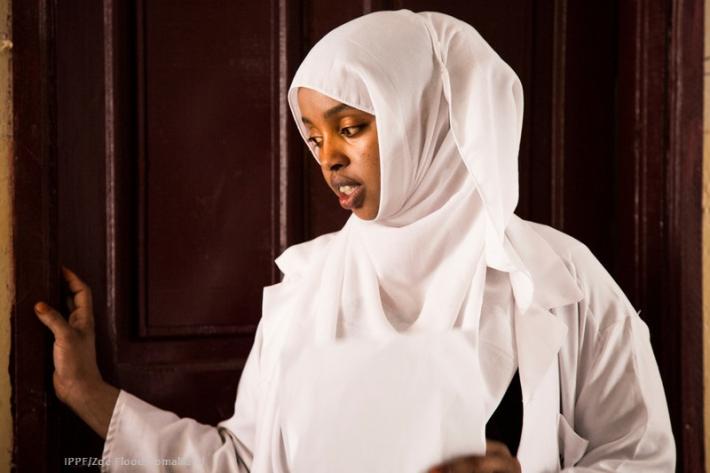Nairobi, Kenya: 26 March 2024 – The International Planned Parenthood Federation Africa Region (IPPFAR) is deeply concerned by the proposal to reverse the ban on Female Genital Mutilation/Cutting (FGM/C) in The Gambia. Lawmakers in the country have voted 42 to four to send the bill to a parliamentary committee for review. Joining the voices of survivors and activists, IPPFAR urges the government to not repeal the law and uphold the rights of women and girls in The Gambia.
The purposed bill to lift the ban of FGM/C in The Gambia is a regressive step that threatens to jeopardize the progress made in safeguarding the rights and health of women and girls. FGM/C is a violation of human rights and poses serious health risks.
Women and girls are subjected to FGM/C in at least 30 countries in Africa. Many reasons are given for this abuse including religious, sexual, cleanliness and health. However, these have been dispelled. FGM/C is not a religious obligation in any religion, it does not increase cleanliness, and has absolutely no health benefits.
In reality, FGM/C is underscored and fuelled by harmful gender and social norms and is yet another way that patriarchal systems try to control bodies and sexuality of women and girls. FGM/C affects women and girls thought their entire lives, impacting both mental and physical health and is unequivocally a gross violation of several human rights including;
- Equality and non-discrimination on the basis of sex,
- Freedom from torture and cruel, inhuman or degrading treatment,
- The Right to highest attainable standard of health,
- The Right to physical integrity,
- The Rights of the child,
- The Right to life.
“At a time when countries are working to end FGM/C for good and protect the rights of women and girls, it is incredibly disappointing that The Gambia is going against this trend and put the lives of young girls and women at risk. We urge the government of the Gambia to join the growing number of countries that are working to eliminate this human rights abuse for good,” said Marie-Evelyne Petrus-Barry, Regional Director, IPPF Africa Region.
The detrimental impacts of the tabling of the bill are already evident across The Gambia. As highlighted by Human Rights Activist and FGM/C survivor Fatou Darboe, the tabling of the pro-FGM/C bill undermines the crucial protections afforded to women and girls in the country. This erosion of protection is exemplified by the observations of activist Haddy Jonga, who rightfully expressed concerns that without stringent enforcement, women and girls remain at risk of undergoing FGM/C.
“FGM/C affects the entire life of a survivor. Those who have been subjected to FGM/C are more likely to drop out of school early, be subjected to early, forced or child marriage, and become pregnant as adolescents. Eliminating the practice increases the chances of a girl finishing school, and contributing towards better health and life outcomes,” added Fadoua Bakhadda, Regional Director, IPPF Arab World Region.
IPPFAR urges the Gambian government to keep the anti-FGM/C law in place. Maintaining the legal framework against FGM/C is imperative to protecting the well-being and bodily autonomy of Gambian women and girls. Anti-FGM/C activists in the country – largely led by survivors – are being attacked and threatened for their efforts to defend human rights. Furthermore, the proposal to reverse the law has emboldened FGM/C practitioners, risking the lives of women and girls.
We urge the government to prioritize the enforcement of the existing Anti-FGM/C law and to ensure the continued advancement of women's rights and the promotion of gender equality in The Gambia.
END
For further information or to request an interview, please contact:
-Mahmoud GARGA, Lead Strategic Communication, Voice and Media, IPPF Africa Regional Office (IPPFAR) – email: [email protected] / Tel: +254 704 626 920
ABOUT IPPF AFRICA REGION (IPPFAR)
The International Planned Parenthood Federation Africa Region (IPPFAR) is one of the leading sexual and reproductive health (SRH) service delivery organization in Africa, and a leading sexual and reproductive health and rights (SRHR) advocacy voice in the region. Headquartered in Nairobi, Kenya, the overarching goal of IPPFAR is to increase access to SRHR services to the most vulnerable youth, men and women in sub-Saharan Africa.
Supported by thousands of volunteers, IPPFAR tackles the continent’s growing SRHR challenges through a network of Member Associations (MAs) in 40 countries. We do this by developing our MAs into efficient entities with the capacity to deliver and sustain high quality, youth focused and gender sensitive services. We work with Governments, the African Union, Regional Economic Commissions, the Pan-African Parliament, United Nations bodies among others to expand political and financial commitments to sexual and reproductive health and rights in Africa.
Learn more about us on our website. Follow us on Facebook, Twitter, Instagram and YouTube.
when
region
Afrique












